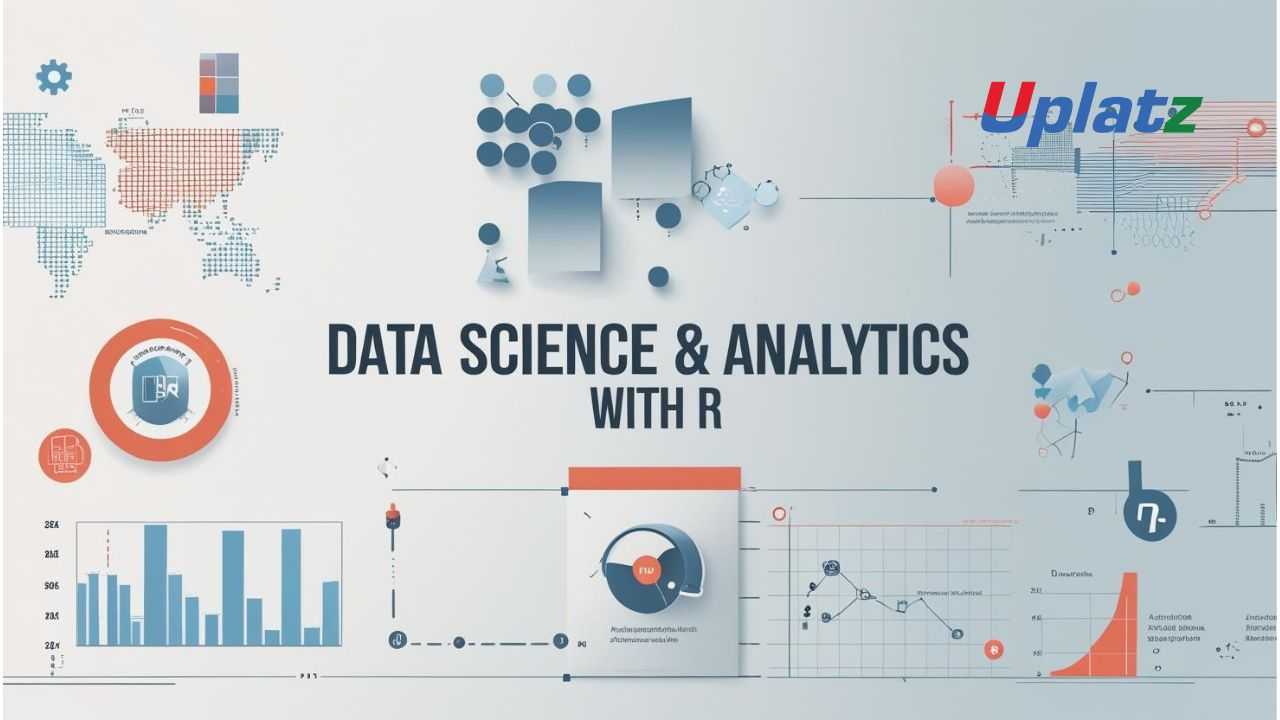RegTech
Master Regulatory Technology (RegTech) – Innovate Compliance and Risk Management in the Digital AgePreview RegTech course
Price Match Guarantee Full Lifetime Access Access on any Device Technical Support Secure Checkout Course Completion Certificate 96% Started a new career
BUY THIS COURSE (
96% Started a new career
BUY THIS COURSE (GBP 12 GBP 29 )-
 85% Got a pay increase and promotion
85% Got a pay increase and promotion
Students also bought -
-

- Financial Accounting & Reporting
- 75 Hours
- GBP 12
- 2666 Learners
-

- Bundle course - Data Science & Analytics with R
- 100
- GBP 27
- 204 Learners
-

- Data Science with Python
- 45 Hours
- GBP 12
- 2931 Learners

RegTech (Regulatory Technology) is a fast-growing field at the intersection of finance, regulation, and digital innovation. This course introduces the core concepts, tools, and real-world applications of RegTech—designed to help financial professionals, compliance officers, fintech innovators, and tech consultants understand how technology is revolutionizing regulatory compliance.
In this course, you’ll explore how AI, machine learning, blockchain, big data, and automation are being leveraged to enhance risk management, AML/KYC compliance, reporting, and regulatory monitoring across financial institutions and beyond.
Whether you're working in banking, insurance, fintech, or regulatory bodies, this course provides essential insights and practical strategies for implementing RegTech solutions to improve efficiency, transparency, and compliance outcomes.
What You Will Gain
By completing this course, you will be able to:
-
Understand the RegTech landscape, from regulation to innovation
-
Analyze case studies across sectors like finance, insurance, and fintech
-
Identify key technologies enabling real-time compliance and automation
-
Evaluate RegTech tools for KYC, AML, fraud detection, and risk scoring
-
Build frameworks for adopting and scaling RegTech in your organization
-
Navigate data privacy, cybersecurity, and ethical challenges in RegTech
Who This Course Is For
This course is perfect for:
-
Compliance professionals and auditors in financial institutions
-
Fintech entrepreneurs and tech developers entering the RegTech space
-
Legal and regulatory consultants
-
Banking and insurance professionals exploring automation and AI
-
Students and researchers studying finance, law, or technology
How to Use This Course Effectively
-
Start with the Foundation – Grasp key terms, trends, and drivers of RegTech
-
Explore Real Cases – Learn how firms like Revolut, HSBC, and Monzo use RegTech
-
Think Cross-Disciplinary – Integrate tech, compliance, and user experience
-
Apply Strategic Frameworks – Assess readiness and risk before implementation
-
Engage in Discussions – Reflect on ethics, data usage, and regulatory impacts
-
Research Vendors – Discover leading platforms and APIs used globally
-
Keep Updated – RegTech evolves fast—track regulatory updates and new innovations
Why Learn RegTech?
With compliance costs and regulatory complexity rising, RegTech is becoming indispensable for financial services and beyond. It empowers organizations to respond to evolving regulations with agility, using automation, real-time analytics, and scalable technology. By learning RegTech, you’ll be at the forefront of digital transformation in compliance, audit, and governance.
Course/Topic 1 - Coming Soon
-
The videos for this course are being recorded freshly and should be available in a few days. Please contact info@uplatz.com to know the exact date of the release of this course.
By the end of this course, you will be able to:
-
Define RegTech and explain its significance in modern regulatory environments
-
Understand how emerging technologies are used to meet compliance goals
-
Explore the regulatory lifecycle and where RegTech fits into it
-
Analyze the impact of RegTech on AML, KYC, fraud prevention, and reporting
-
Evaluate vendor solutions and platforms for different use cases
-
Address legal, ethical, and security considerations in RegTech adoption
Course Syllabus
Module 1: Introduction to RegTech
-
What is RegTech?
-
Evolution and Drivers of RegTech
-
RegTech vs FinTech vs SupTech
Module 2: Key Regulatory Challenges
-
Regulatory Overload and Cost Pressures
-
AML/KYC Requirements
-
GDPR, MiFID II, Basel III, FATF
Module 3: Technologies Powering RegTech
-
AI and Machine Learning
-
Natural Language Processing
-
Blockchain and Smart Contracts
-
Big Data and Analytics
-
Robotic Process Automation (RPA)
Module 4: RegTech Use Cases and Solutions
-
Customer Onboarding and Identity Verification
-
Transaction Monitoring and AML Detection
-
Regulatory Reporting Automation
-
Fraud Prevention and Cybersecurity Compliance
Module 5: RegTech in Practice
-
Case Studies: HSBC, Revolut, Fenergo, ComplyAdvantage
-
Cloud-Based RegTech Platforms
-
API Integration with Banking Systems
Module 6: Regulatory Lifecycle and Implementation
-
Risk Assessment and Mapping
-
Vendor Evaluation and Due Diligence
-
Integrating RegTech with Legacy Systems
-
Building a RegTech Adoption Roadmap
Module 7: Governance, Ethics, and Regulation of RegTech
-
Data Privacy and Consent (GDPR, CCPA)
-
AI Ethics and Bias in Algorithms
-
Regulatory Sandboxes and Innovation Hubs
-
Cross-Border Regulation Challenges
Module 8: The Future of RegTech
-
RegTech-as-a-Service (RaaS)
-
SupTech: Supervisory Technology for Regulators
-
Digital Identity and Self-Sovereign ID
-
ESG Reporting and Sustainable Finance
Module 9: Projects and Applications
-
Design a RegTech Framework for a Fintech Startup
-
Audit Automation Tool Planning
-
Building a Vendor Evaluation Checklist
Module 10: RegTech Interview Questions & Answers
-
Industry Concepts and Regulations
-
Implementation Scenarios
-
Risk and Strategy Questions
Upon successful completion, learners will receive a Certificate of Completion from Uplatz, validating their knowledge of regulatory technology, innovation in compliance, and strategic risk management. This certificate enhances your profile for roles at the intersection of law, finance, and technology.
RegTech professionals are increasingly in demand across financial institutions, consultancy firms, regulatory bodies, and technology companies. This course prepares you for roles such as:
-
RegTech Analyst
-
Compliance Technology Consultant
-
Digital Risk Officer
-
AML/KYC Operations Specialist
-
Governance, Risk & Compliance (GRC) Technologist
-
What is RegTech and how does it benefit financial institutions?
Answer: RegTech is the use of technology to simplify and automate regulatory compliance processes. It helps financial institutions reduce compliance costs, improve accuracy, ensure real-time reporting, and respond swiftly to regulatory changes. -
What are key use cases of RegTech?
Answer:-
AML and KYC checks
-
Regulatory reporting automation
-
Fraud detection
-
Transaction monitoring
-
Customer identity verification
-
-
How does RegTech differ from FinTech?
Answer: While FinTech focuses on transforming financial services delivery, RegTech focuses on transforming compliance and regulation. RegTech is a subset of FinTech concerned specifically with regulatory efficiency and transparency. -
What technologies are commonly used in RegTech platforms?
Answer:-
AI and machine learning for anomaly detection
-
NLP for regulatory document analysis
-
Blockchain for audit trails and identity
-
RPA for repetitive compliance tasks
-
Big data for risk analytics
-
-
What is SupTech?
Answer: SupTech, or Supervisory Technology, is the use of technology by regulators themselves to supervise and monitor financial institutions, detect risks, and streamline regulatory enforcement. -
How do RegTech tools enhance AML/KYC processes?
Answer: RegTech tools automate data collection and screening, use AI to detect suspicious patterns, enable continuous monitoring, and provide audit trails for regulatory reporting. -
What is a regulatory sandbox?
Answer: A regulatory sandbox is a safe testing environment created by regulators where firms can trial innovative RegTech or FinTech solutions under supervision without facing full regulatory consequences. -
What are the main challenges in adopting RegTech?
Answer:-
Integration with legacy systems
-
Data privacy and security concerns
-
Regulatory fragmentation across countries
-
Vendor reliability and solution scalability
-
-
How is AI used in RegTech?
Answer: AI is used to detect anomalies, score risk, interpret regulations, automate document review, and enhance fraud detection using behavioral patterns and predictive models. -
What is the future outlook for RegTech?
Answer: RegTech is poised to expand into ESG compliance, real-time regulatory intelligence, decentralized identity systems, and become integral to automated governance and sustainable finance.









